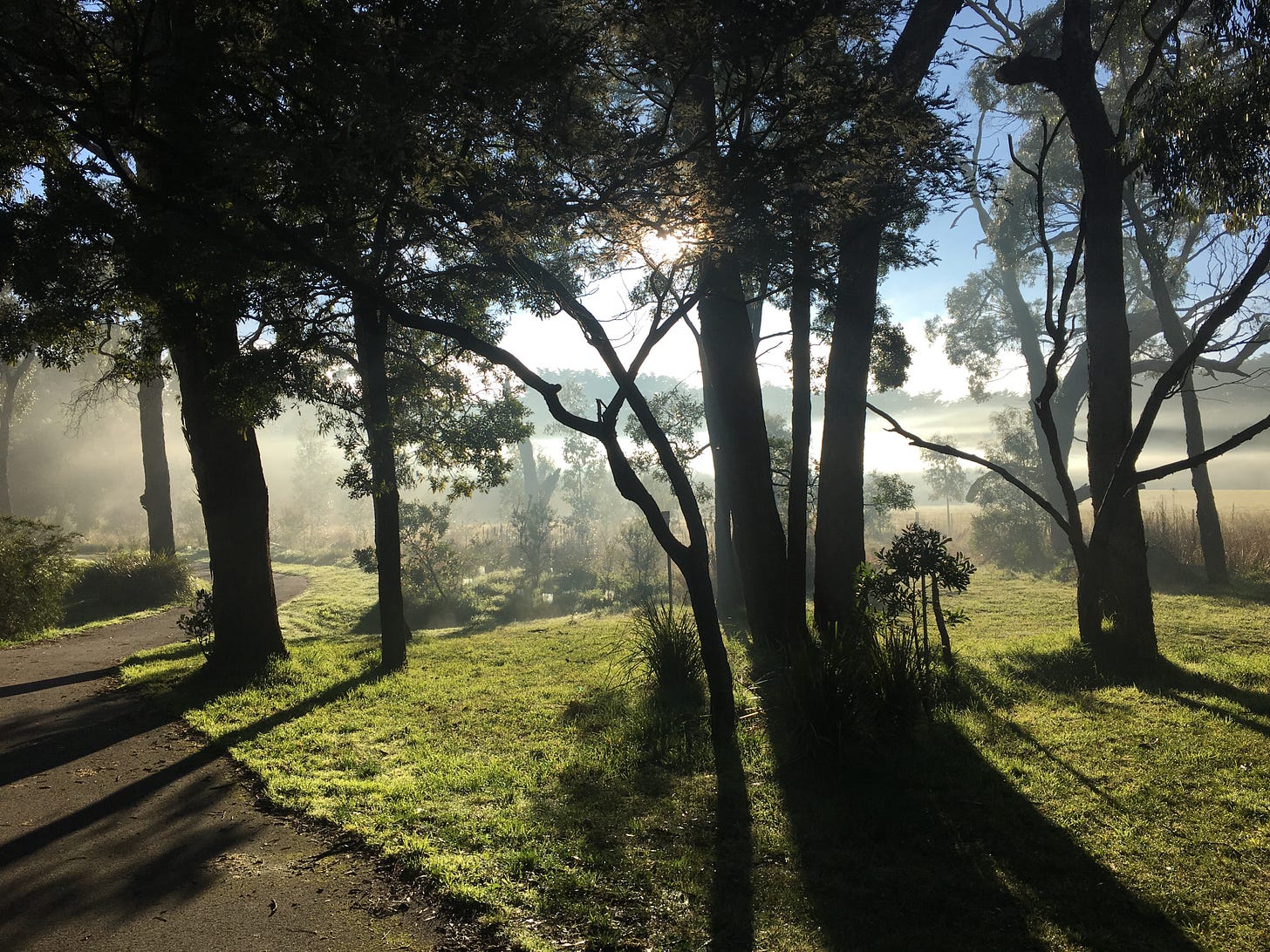Changing your life takes more than just ideas
You're built by attention and action – not just what you tell yourself.
If you want to ruin someone’s day, ask them if they’re really living up to the things they value.
It’s the man who preaches family above all else but has spent the last 10 years building a secret family. It’s the woman who says they’d never say something hurtful or racist but has used “Jew” as a slur for 70 years. It’s the father who’s all about loyalty and toughness but cuts his son out of his life over a grievance he won’t let go.
And those are just examples from my extended family.
Living your values is hard
I’m not immune, of course.
I value open and honest communication but I still catch myself dodging tough conversations. I’ve been an inconsiderate boyfriend (and date) because I wasn’t totally honest with myself and, by extension, my partner.
I knew better at every stage. But knowledge alone isn’t enough.
The things you know need to become part of you and how you live.
Ideas alone can’t improve your life
Charlotte Joko Beck, an American Zen Buddhism teacher with a focus on the intersection of Zen and psychology, laid out the challenge we’re facing:
There are many wonderful concepts and ideals, but if they don’t become who we are, they can be the most fiendish burdens. Understanding something intellectually is not enough; sometimes it is worse than not understanding at all.
Beck argues that ideas and concepts “cannot remain merely in our heads; [they] must transform into our being.”
Here’s why that matters: you’re not what you think.
You are the way you spend your time
Your behaviour matter more than what you think. Tell yourself whatever you like – your actions tell the truth. In a recent issue of her newsletter about choice and intuition,
put it well:At the sushi counter my friend explains the main terror of being in a situationship: they say they want one thing but their actions feel meaningfully different. In the end actions tell you the truth, don’t they?
The British journalist Oliver Burkeman takes it a step further in the best-seller Four thousand weeks, his exploration of mortality and time. “The things you pay attention to,” he argues, “will define what reality is for you.”
He continues:
Attention just is life: your experience of being alive consists of nothing other than the sum of everything to which you pay attention. At the end of your life, looking back, whatever compelled your attention from moment to moment is simply what your life will have been.
This has deep echoes in Zen Buddhism. Thich Nhat Hahn, a Zen master who was a key figure in bringing mindfulness to the West, illustrated the power of attention in his beautiful book The sun, my heart:
Remember we are whatever we choose. Have you ever been on a beach when the sun rises, or on a mountain top at noon? Did you stretch your arms wide and breathe deeply, filling your lungs with pure, clean air, with unbounded immensity? Did you feel as if you were just the sky, the sea, the mountain? If you are too far away from the sea or the mountain, you can just sit cross-legged and breathe gently and deeply, and the sea, the mountain, the entire universe will enter you.
We are our attention. We are our actions. Thoughts are just that: thoughts. Powerful as they are, they’re fleeting. They can be a starting point but they can’t define our lives by themselves.
The pain of change
This can, of course, painful to think about. Is your understanding of yourself consistent with your actions?
You can’t just say you love someone – you need to live it. And love is demanding.
You can’t just say you’re a good parent. You can’t just say you value nature, or care about animals, or want to get into photography. You can’t just read advice.
Every value has a corresponding action. Every thought can be expressed. Without that action or that expression, they’re just passing moments in your mind. Tiny electric sparks made conscious.
If you’re not living your values, that can change. As we’ve discussed before, though, that means sacrifice:
All personal growth means giving up an equivalent amount of your old self. Even deciding you need to change represents means sacrificing your sense that you’re okay as is.
For me, it meant sucking it up and having open conversations with my partner. It meant taking the time to understand how I feel, to put it into words and to trust that she’d understand.
I say I value the environment. That’s meant spending time (and money) doing the work required to build a garden that’s healthy for my local area and its critters; to donate money to charities; to shop locally and ethically; to eat vegetarian.
It’s meant interrogating what I believe and, systematically, aligning my behaviour to those beliefs. I’m far from perfect. No-one is unimpeachable; even Mother Teresa had some questionable approaches to medicine.
And it’s not a way of living you just achieve and that’s it, you’re good. It’s a decision, every day. It’s a practice. (And, in trying that out, you might realise you don’t actually care about the things you say you value. That’s cool too.)
The sacrifices that come with change can be hard. But it’s worth it. In Four thousand weeks, Burkeman sums up the alternative:
So when you pay attention to something you don’t especially value, it’s not an exaggeration to say that you’re paying with your life.
When framed like that, some more time in the garden seems pretty great. Even if I do have a lot of pruning to do.





Beautifully said and curated.
“It meant taking the time to understand how I feel.” How do you interrogate feelings without leading or contriving them?